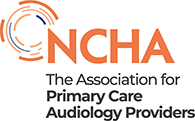03 March 2025
WHO calls for change in attitudes to hearing loss and swift access to care
The NCHA wholeheartedly supports the World Health Organisation's call to "make ear and hearing care a reality for all".
By 2030, the WHO expects more than 500 million people to have a disabling hearing loss requiring rehabilitation. More than 13 million of those are in the UK.
Unsupported adult hearing loss has a considerable impact on the ability to communicate with colleagues, friends and family and increases the risk of depression, loneliness and social isolation. People with hearing loss are less likely to have work, typically earn less and are more likely to stop working at a younger age.
These effects on quality of life make hearing loss one of the leading causes of years lived with disability in the UK, and yet people still face debilitating waits to see a specialist for NHS-funded care.
There is an enduring stigma and misconceptions around people who struggle to hear. Many people with hearing aids continue to report negative and discriminatory practices. A Royal National Institute for the Deaf survey reported that more than half of the people it interviewed were regularly excluded from everyday conversation, with people either ignoring them entirely or shouting at them.
The latest NHS figures show waiting times for ear and hearing care remain stubbornly high across the UK.
In England, audiology has one of the highest proportions of patients waiting six weeks or more out of 15 diagnostic tests. ENT has the highest number of incomplete referral-to-treatment pathways for consultant-led elective care. There are similar challenges elsewhere in the UK. In Scotland, some patients wait longer than six months for their NHS hearing aids, while in Wales, the latest figures show that more than 4,000 people are waiting more than three months for their initial hearing assessment.
The Westminster government has responded to calls to reduce pressure on ENT and audiology services by promising to give patients a wider choice of providers - part of its response to Lord Darzi's independent review of the NHS. Three strategic shifts are central to its 10-Year Health Plan for the health service: hospital to community, analogue to digital, and sickness to prevention.
It singled out Ear, Nose and Throat services as under particular pressure, stating that "30% of ENT referrals currently made to secondary care could be provided in the community".
The NCHA supports NHS patients' ability to access primary care audiology services, putting them back in control of their care. Harjit Sandhu, its chief executive, said: "Patients are suffering long waits for hospital-based diagnostic tests and ENT colleagues are under immense pressure. Therefore, we have called for the NHS to extend patient choice in the NHS Constitution to include non-consultant-led audiology services and to allow people to access care closer to home."
Jenny Lincoln, the NCHA's head of policy, said: "We fully support extending patients' right to choose how they access NHS care. This is critical for patients of ear and hearing care, who currently face a postcode lottery of how and when they can access care."
- Globally, more than 1 billion young adults are at risk of permanent, avoidable hearing loss due to unsafe listening practices
- More than 90% of deaf children are born to hearing parents
- About 5% of adults aged 45-54 have a disabling hearing loss
- Hearing loss increases exponentially with age; more than 70% of people over 70 have a hearing loss
- Hearing loss research remains significantly underfunded compared to other health areas.
__________________________________________________________________________________________
For any queries, please email Hannah Williams, [email protected]

Press enquiries
Media enquiries should be directed to [email protected] or call 020 7298 5110.
We are happy to put you in touch with our expert policy advisers who can comment on a variety of issues.
You can also follow us on Twitter and LinkedIn.

 Your hearing and aural health
Your hearing and aural health  Commissioners and Policymakers
Commissioners and Policymakers  Member support and guidance
Member support and guidance News and views
News and views
 Hearing map
Hearing map
